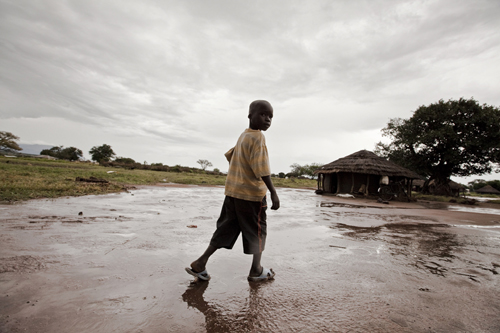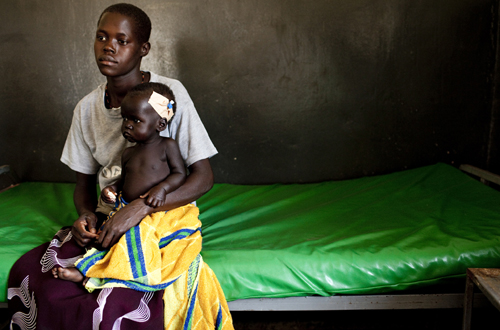Funding for AIDS treatment stagnating despite millions still in need
In 2005, world leaders at the G8 summit in Scotland pledged support for universal AIDS treatment coverage by 2010. But now those same leaders are retreating from the pledges made, leaving governments and millions of people with HIV/AIDS at a dangerous loss.
An estimated ten million people living with HIV/AIDS in the developing world are in urgent clinical need of antiretroviral (ARV) therapy. HIV/AIDS is the leading cause of death among women of child-bearing age worldwide and accounts for more than 40 percent of deaths of children under the age of five in the six highest HIV prevalence countries, according to the World Health Organization.
However, the US President's Emergency Plan for Aids Relief (PEPFAR) which has pledged to treat a total of 4 million people by 2013 is capping funding for two more years. And MSF and others are starting to see disturbing early signs of the international community's retreat from AIDS treatment scale-up. In some African countries disproportionately affected by the HIV/AIDS pandemic, people seeking treatment are being turned away from clinics. Patients already receiving ARV therapy are being forced to interrupt their treatment because they can no longer afford it, thus increasing their chances of becoming sick and developing resistance to drugs.
MSF is calling for governments to fulfill their commitments to provide access to life-saving AIDS treatment for every person in need and to fully fund the fight against AIDS, including through the Global Fund to Fight AIDS, TB, and Malaria.
 |
| Eight-year old Opira Isaac is HIV positive. After losing his parents five years ago to AIDS, he and his four siblings now live with his grandmother, Kelemntina, in Madi Opei with her two adult sons. Kelementina lives in her tukul with the five children and her two older sons and says that she cannot care for her household like she wants to, because she is getting old and does not have much strength anymore. [Uganda 2009 © Brendan Bannon/MSF] |
 |
| Amato Susan, 20-years old, sits with her 7-month old daughter, Atih-Bedo Brenda. Susan is HIV positive and is waiting to find out whether her daughter is also infected with the virus, following a malaria diagnosis which HIV infected children are particularly vulnerable to. "After I received the test results which said I was HIV positive, I was very angry at my husband for giving this to me. I was also scared, I knew that I had to get treatment for me and my child." [Uganda 2009 © Brendan Bannon/MSF] |
 0 Comments
0 Comments







Comments